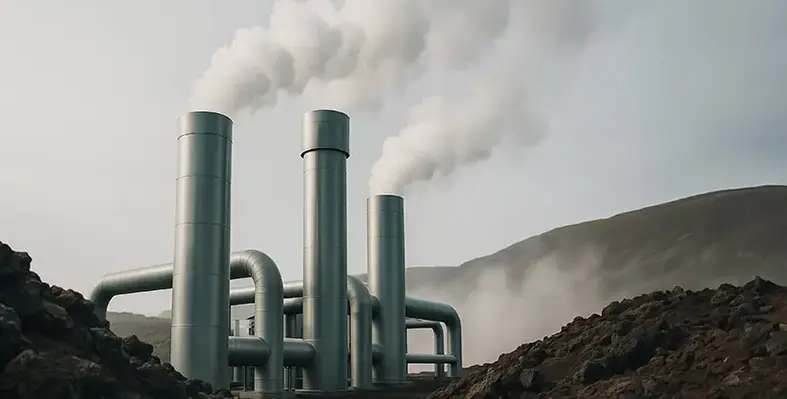 The Ministry of New and Renewable Energy (MNRE) has unveiled a pioneering national policy aimed at unlocking India’s geothermal energy potential.
The Ministry of New and Renewable Energy (MNRE) has unveiled a pioneering national policy aimed at unlocking India’s geothermal energy potential.
This move is a crucial step towards helping India achieve its ambitious net-zero emissions goal by 2070. Geothermal energy, a renewable resource derived from the Earth's internal heat, offers a significant opportunity to meet India’s growing energy needs sustainably, especially given its largely untapped potential.
The National Policy on Geothermal Energy focuses on boosting research in geothermal energy development, exploring new drilling technologies, and improving cost-effective power generation. It also advocates for direct-use applications of geothermal energy, such as heating and cooling. To accelerate the sector’s growth, the policy encourages collaboration with international bodies, ministries, and national research institutes, ensuring the adoption of global best practices in geothermal exploration, resource management, and technology deployment.
A key feature of the policy is fostering partnerships between geothermal developers and oil and gas companies to repurpose idle or abandoned wells. By leveraging the expertise of existing drilling infrastructure, these partnerships aim to reduce the cost and complexity of geothermal energy development.
India's Geological Survey has identified 10 geothermal provinces, including the Himalayan region, Naga-Lusai, and the Andaman and Nicobar Islands, as prime areas for geothermal exploration. To further accelerate the sector, the central, state, and local governments may introduce additional incentives and guidelines to encourage sustainable and bankable geothermal energy projects.
